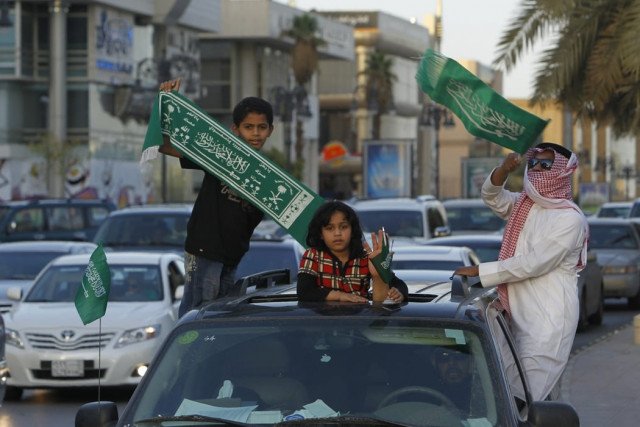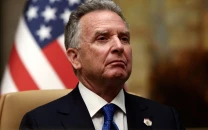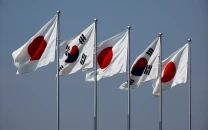Saudi king orders $100 billion in social benefits
King Abdullah warns against attempts to undermine the kingdom as upheaval sweeps the Arab world.

The monarch appeared to be responding to the whirlwind of regional unrest that has ousted autocratic regimes in Egypt and Tunisia, and thrown Bahrain, Yemen and Libya into bloody turmoil.
In a speech aired on state-run television, the king, who returned home in February from three months of medical treatment, praised Saudi security forces for preventing protests that were planned for March 11.
"You are the hitting hand against whoever considers undermining the nation's security and stability," the king said, addressing the security forces.
He rewarded the interior ministry by ordering the creation of 60,000 more military and security jobs and a large number of promotions for soldiers and officers.
And he coupled the warning with an announcement of massive social benefits including unemployment payments, better health care and improved housing services estimated by Banque Saudi Fransi to cost $93 billion.
Among other things, he ordered the pumping of 250 billion riyals ($67 billion) for the construction of 500,000 housing units. In late February, the king ordered social benefits worth an estimated $36 billion, mostly aimed at youth, civil servants and the unemployed.
The two measures are significant in size as they amount to 29.7 percent of 2010 gross domestic product, said Banque Saudi Fransi chief economist John Sfakianakis in an economic report.
"We believe the measures can be comfortably sustained... High oil revenues could be used to support the announced spending as well as tapping into the country's $444.5 billion in foreign assets," he said.
Saudi's oil-rich Eastern Province, where most of the country's Shiite minority lives, has been rocked by protests in recent days.
Tensions flared after Saudi forces rolled into Bahrain on Monday to help the neighbouring kingdom's Sunni Muslim ruling dynasty crush Shiite-led unrest.
Saudi Shiites rallied Friday for a fourth consecutive day to show solidarity with protesters in Shiite-majority Bahrain and demand the release of prisoners.
Witnesses said security forces fired tear gas at demonstrators in the city of Qateef where shots also rang out. Marches were also held in the cities of Tarut, Safwa and Awamiya.
A witness said that about 10 Saudi Shiite protesters were hurt in clashes with riot police on Friday in the city of Omran.
In addition to new houses, all civil servants and the military were gifted the equivalent of two months' salary, and the same to university students, the king said.
The monarch also ordered a minimum monthly wage of 3,000 riyals ($800) for civil servants up from 2,185 riyals, and introduced a monthly unemployment benefit of 2,000 riyals for job-seekers. Payments will start after about eight months.
Unemployment in the world's biggest crude exporter was 10.5 percent last year, but was as high as 30 percent in the 20-29 age group with an estimated 450,000 Saudi citizens without jobs.
The king also thanked the religious establishment for helping against protests through issuing fatwas, or religious edicts, outlawing demonstrations.
The king forbade any criticism of the head of the senior religious scholar, Sheikh Abdulaziz al-Shaikh, and ordered around one billion riyals in assistance to various religious bodies including the religious police.
Another decree called on the authorities to force the private sector to create more jobs for Saudis. Around 90 percent of several million private sector jobs are currently occupied by foreigners who number six million.
The king also ordered the establishment of a national anti-corruption authority to be headed by a high-ranking official in the capacity of a minister.
A national anti-corruption body and the holding of officials to account have been major demands for reformists in the ultra-conservative Muslim kingdom. The corruption watchdog will be directly under the king.


















COMMENTS
Comments are moderated and generally will be posted if they are on-topic and not abusive.
For more information, please see our Comments FAQ